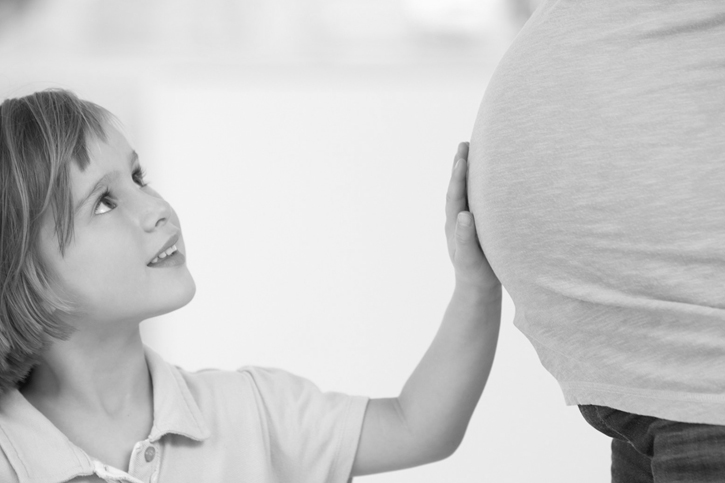It’s an exciting moment for all mothers, that first little tickle that comes from within the belly. It can be the first realisation that your newborn is growing healthily and taking up more and more space within the womb. However, this stage happens differently for a lot of mothers, and in the early weeks what may feel like a kick could be something else entirely. Rest assured that as your pregnancy progresses there will be no mistaking your baby’s foot for some trapped wind.

The first bump or tickle felt by a mother is a magical moment, however, it happens at different times for different mothers. Here are a few things you should know about your baby’s movements.
Why Does My Baby Move?
Most of your baby’s movements, also known as ‘quickening’, are practices for life outside the womb. Think of it as your baby doing a bit of a warmup in preparation for the great outdoors. Many of these movements come in the form of muscle stretches, however, babies will also give their lungs a workout by breathing in the amniotic fluid. Similarly, they practise eating and using their kidneys by swallowing fluids.
During later-stages babies will respond to stimulus and have even been known to play with their umbilical cord and practise crawling within the womb.
When Can I Expect To First Feel Movements?
Well, it happens differently for different mothers, but usually those early flutters will start to begin within the first 16 to 22 weeks. In fact, babies actually start to move their body between 8-10 weeks when they are about an inch long, but because they have so much room within the womb, you usually won’t be able to feel it until a few weeks later.
In the beginning, it will be a very subtle feeling and it will be hard to discern from normal pregnancy gas. Your baby’s activity will likely be intermittent and you will probably only feel it while lying down on your back. Many mothers describe their baby’s first movements as similar to fluttering butterflies, bubbles or even popped corn in their bellies.
One factor that may shield a mother from the movement of her baby is the positioning of her womb relative to her stomach. Despite this, if you haven’t felt any movement from the baby by 24 weeks, it’s a good idea to organise an appointment with a midwife or a doctor who will check for a heartbeat and perform an ultrasound if necessary.
How Do The Movements Progress?
Between 24 and 34 weeks, your baby’s movements will start to peak and you may notice a lot of kicking, jerking or even summersaults, particularly in the evening. During this period it’s likely you will become accustomed to your baby’s particular activity patterns.
By the end of this period, the movement will likely be restrained to stretching and kicking, and after the 36-week mark, the baby will take up its final resting position.
At this point, your baby will be growing larger and stronger, and won’t be moving as much as there won’t be room. Be wary though, any kicks or punches that do come can become painful for some mothers.
How Often Should I Feel My Baby Move?
Your baby’s activity will likely be very irregular during the early stages, but a good way to check your baby’s movement if you are concerned is to lie down and nurse your bump for two hours. You should feel around 10 separate movements within this period.
If you regularly feel like your baby isn’t moving as much as it should, you should book an appointment with your obstetrician for a checkup.
If you are concerned about your baby’s movements and would like to book an appointment, please get in touch today. Dr Bevan Brown is one of the most trusted obstetricians in the Hills District.
We understand that no two pregnancies are the same, so we’re there for you every step of the way, before, during and after. Personalised care and strong relationships with our patients is of utmost importance to us!